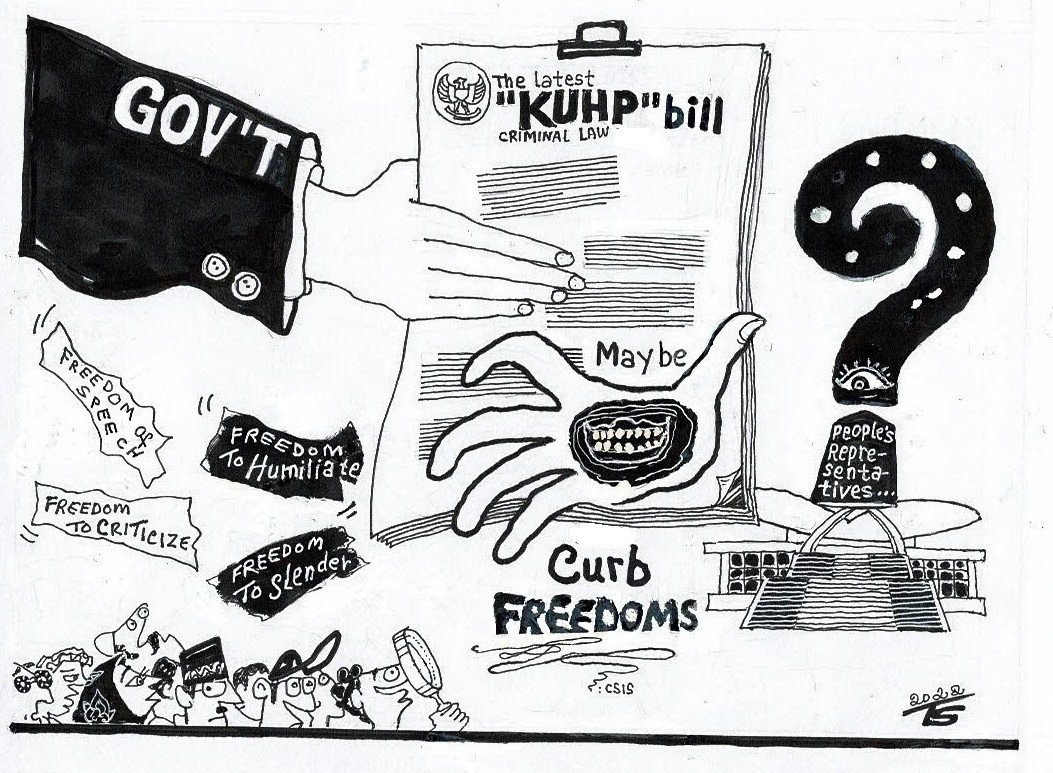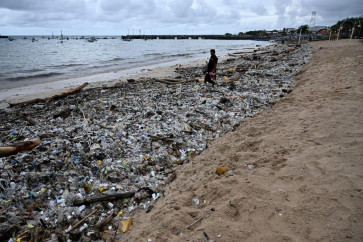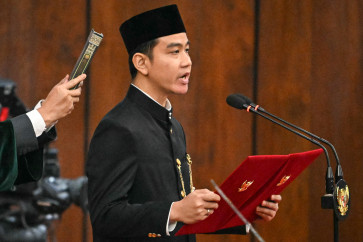All eyes on latest RKUHP as House returns from break
Controversy continues to cloud the draft Criminal Code bill on the eve of the legislature's return from recess, with the latest criticizing the public consultations as being too one-sided.
Change text size
Gift Premium Articles
to Anyone

H
ouse of Representatives lawmakers return from recess on Tuesday for the last session of the year, but questions remain on when – or if – deliberation on the draft Criminal Code bill (RKUHP) is to continue after the government submits the latest updates based on limited discussions with the public.
“The [RKUHP deliberation] will be decided once the House is in session,” Taufik Basari, a NasDem Party lawmaker and member of House Commission III overseeing legal affairs, said on Sunday.
Meanwhile, the government-appointed drafting team is still updating the draft legislation using recent feedback from a series of public consultations, which civil society groups have criticized for its one-sidedness, raising doubts that the input actually represented the will of the people.
“The government will submit the [reformulated] RKUHP along with its amendment matrix [...] for final deliberation with Commission III in mid-November,” drafting team spokesperson Albert Aries said on Sunday.
The government previously held a series of limited discussions between August and October, from which it promised to gather public input to alter some provisions in the draft bill submitted in July. The move followed an instruction from President Joko “Jokowi” Widodo, who had responded to public criticism over draconian provisions deemed a threat to civic space.
The government and lawmakers initially agreed to open 14 “priority issues” from the draft bill to public scrutiny, but a meeting on Oct. 3 agreed to accommodate 12 out of 19 additional points, including amendments from the Press Council regarding articles and explanations on provisions related to press freedom. Among these were rules on attacking the dignity of a sitting president and vice president, contempt of court, religious crimes and defamation.
Deputy Law and Human Rights Minister Edward “Eddy” O.S. Hiariej has said that the government also accommodated inputs from the Institute of Criminal Justice Reform (ICJR). He recently suggested that the draft bill could be finalized by the end of this year, according to a Tempo.co report, even though Jokowi told media chiefs in July that the amendment process would not be rushed and would offer an opportunity for the public to voice their concerns.
Lawmaker Arsul Sani from the United Development Party (PPP) faction said on Sunday that the House would review the public’s input before continuing with a vote to approve the draft bill and then sending it on to a plenary session for passing into law.
One-sided discussions
The public consultations on the draft Criminal Code Bill were intended to gather input from students, law experts and other members of civil society, but critics say they were one-sided and failed to uphold the principle of meaningful participation.
Muhammad Isnur, chairman of the Indonesian Legal Aid Foundation (YLBHI), said the consultations focused too much on the views of criminal law experts.
Others want the latest draft bill to be publicized to ensure accountability.
“There is supposed to be a new draft [bill] released by the government to be discussed with lawmakers, because there are some new provisions and inputs from the ICJR, the Press Council, lawyers and the National Alliance for Criminal Code Reform,” ICJR executive director Erasmus Napitupulu said on Monday.
Albert dismissed the criticism, however, saying the drafting team had sought to fulfill the people’s right to be heard, and that all feedback would be considered.
Separately, Taufik and Arsul promised that any upcoming deliberation would remain open to the public.









